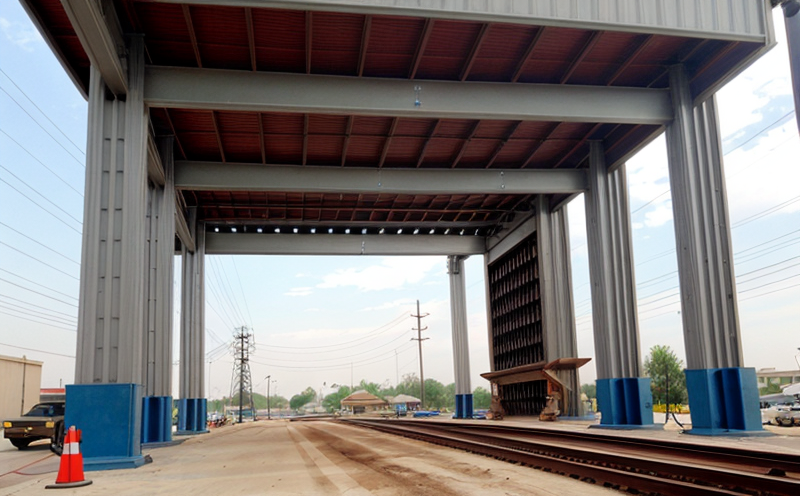ASTM D7901 Fatigue Testing of Sandwich Composites
The ASTM D7901 standard specifies procedures and requirements for performing fatigue testing on sandwich composite specimens. This type of testing is crucial in the aerospace & aviation sector as it helps ensure that materials used in aircraft structures can withstand cyclic loading without failure.
Structural components, especially those found in wings, fuselage sections, and landing gear, are subjected to significant stress cycles during flight operations. The fatigue properties of these materials must be accurately determined to prevent catastrophic failures. ASTM D7901 provides a standardized approach for testing these components under controlled conditions.
The fatigue testing process involves subjecting the specimen to alternating loads until it fails. This test is performed using specialized machines that can apply cyclic loading at different frequencies and amplitudes, simulating real-world flight conditions. The results from this testing are critical for understanding how materials will perform over their intended service life.
Compliance with ASTM D7901 ensures that the tested materials meet industry standards and regulatory requirements, thereby enhancing product reliability and safety. This is particularly important in aerospace & aviation, where even minor material flaws can lead to significant consequences.
The testing process typically involves several steps:
- Material selection and preparation
- Sandwich composite specimen fabrication
- Machine setup for cyclic loading
- Data collection during the test run
- Post-test analysis and reporting
It is essential to adhere strictly to ASTM D7901 guidelines throughout these steps to ensure accurate and reproducible results. The testing apparatus used should be capable of applying precise cyclic loads over extended periods, often in the range of hundreds or thousands of cycles.
The specimen preparation process involves careful consideration of the geometry and dimensions specified by the standard. This ensures that the test conditions accurately reflect real-world usage scenarios. Proper specimen preparation is crucial for obtaining reliable data on fatigue life and strength properties.
Data collection during the test run includes recording key parameters such as applied load, displacement, and strain. These measurements are used to determine the stress-strain relationship and ultimately predict material behavior under cyclic loading. Advanced instrumentation is often employed to capture high-resolution data throughout the testing process.
Post-test analysis involves evaluating the collected data to determine fatigue life and strength properties. This information is then reported according to ASTM D7901 specifications, providing a comprehensive assessment of the materials' performance. The results can be used to inform design decisions and improve material selection processes in future projects.
Applied Standards
| ASTM Standard | Description |
|---|---|
| ASTM D7901 | Standard Practice for Fatigue Testing of Sandwich Composites |
Benefits
- Ensures compliance with industry standards and regulatory requirements
- Improves material reliability and safety in aerospace & aviation applications
- Promotes the use of high-quality materials through accurate testing
- Reduces the risk of catastrophic failures due to material fatigue
- Aids in design optimization by providing detailed insights into material performance
- Facilitates consistent testing results across different laboratories and jurisdictions
Competitive Advantage and Market Impact
- Enhances product quality and safety, leading to customer trust and satisfaction
- Promotes innovation by enabling the development of advanced composite materials
- Facilitates regulatory compliance, opening up new market opportunities
- Safeguards against liability claims resulting from material failures
- Supports sustainable manufacturing practices by identifying durable materials
- Aids in maintaining a competitive edge through consistent product performance





